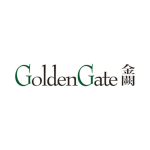The e-commerce market in China is one of the fastest growing in the world. To improve regulation over the flourishing market and maintain the market order, China promulgated the E-Commerce Law which became effective on January 1 2019. Notably, the E-Commerce Law addresses intellectual property protection in e-commerce settings. To reflect further developments regarding e-commerce in China, and to implement intellectual property protection more efficiently, on June 10 2020, the Supreme People’s Court of China (SPC) released Draft Guiding Opinion on the Adjudication of Intellectual Property Disputes Involving E-commerce Platforms 《关于审理涉电子商务平台知识产权纠纷案件的指导意见》 (Guiding Opinion) for public consultation.
According to Article 6 of the Guiding Opinion, e-commerce platform operators are allowed to formulate specific implementation measures for the notification and declaration mechanism on the platform based on types of intellectual property rights, characteristics of goods or services and other factors. However, the relevant measures should not impose unreasonable conditions or restrictions for right holders when it comes to protecting their intellectual property.
Interestingly, to tackle growing unfair competition among e-commerce platforms, the Guiding Opinion prohibits an e-commerce platform from excluding the operators on its platform from participating in business activities organised by other e-commerce platforms and imposing restrictions on such participation. The Guiding Opinion requires the courts to accept lawsuits where operators on the platforms file on the ground that the platform violates the provisions of competition law.
In respect of Article 42 of the E-commerce Law, where an IP right holder informs the relevant platform of the infringement, provides prima facie evidence of infringement and asks the platform operator to take necessary measures, including removing the postings or blocking links, the Guiding Opinion stipulates that the notice should include:
i) IP certificate and valid information of the right holder;
ii) information about the alleged infringing goods or services that can be accurately located;
iii) prima facie evidence of infringement;
iv) the specific measures requested to be taken by the e-commerce platform operator;
v) an undertaking in relation to the authenticity of the notice
If the notification involves patent rights, the platform operator may require the right holder to submit the description of comparison of technical features or design features, along with a patent evaluation report of utility model or design.
Meanwhile, regarding the statement of non-infringement presented by the operator on the platform pursuant to Article 43 of the E-commerce Law, the Guiding Opinion sets out similar rules relating to the substances and elements of the statement of non-infringement presented by the operator on the platform.
It is worth noting that the e-commerce platform operator should promptly terminate measures such as deletion, blocking and disabling the link, if, within 25 working days after the statement of non-infringement is delivered to the right holder, the platform fails to receive written documents evidencing that the court or administrative authority has accepted the claim filed by the right holder. Also, pursuant to Article 42.3 of the E-Commerce Law, anyone who causes loss to the operators of a platform due to maliciously providing a wrong notice shall be responsible for double damages. The Guiding Opinion defines "malicious intent" as i) submitting false proof of rights; ii) submitting false appraisal opinions and expert opinions; and iii) failing to withdraw the notice after knowing that the notice is wrong.
Pursuant to Article 45 of the E-Commerce Law, an e-commerce platform operator shall assume joint and several liability where it knows or should know about any infringement but fails to take necessary measures. The Guiding Opinion makes a clarification about “should know” and lists the following circumstances where the court may determine that a platform operator "should know" about an infringement.
i) the platform operator failed to make intellectual property protection rules and examine the business qualifications of the operators on the platform;
ii) the platform operator failed to examine the certificate of rights of operators marked with the wording "flagship store" and "exclusive operation store" on the platform;
iii) the platform operator failed to adopt effective technical means to filter and block links to goods containing words such as "high imitation" and "fake goods", as well as links to goods that are repeatedly put on the line after a complaint is established.
It should also be pointed out that the Guiding Opinion specifically addresses emerging circumstances. In case of emergency, if the right holder is at risk of suffering from irreparable damage without the platform taking measures immediately or the operator on the platform is at risk of suffering from irreparable damage without the platform terminating its measures immediately, either the right holder or the operator on the platform may file an application to the court to take preservation measures in accordance with the civil procedure law.
Although it remains to be seen how the Guiding Opinion will eventually be enforced, it reflects China's pledge to protect IP rights in the e-commerce market.












